Omagh bombing: Irish inquiry would be 'very beneficial' says O'Loan
- Published
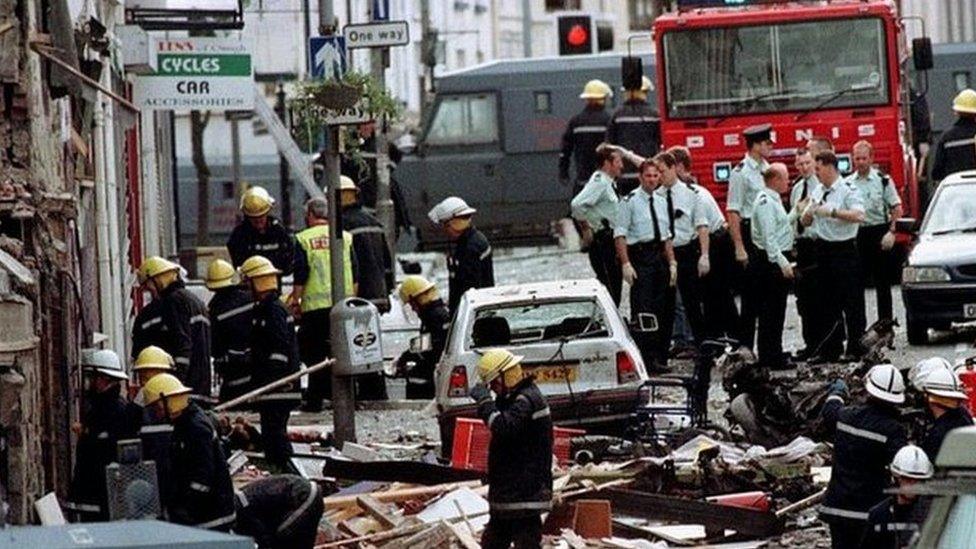
The bombing was carried out by the Real IRA just months after the Good Friday Agreement was signed
A separate inquiry by the government in the Republic of Ireland into the Omagh bombing would be "most useful", a former police ombudsman has said.
The terms of reference for a UK government inquiry were published, external on Wednesday.
Baroness Nuala O'Loan said a "parallel inquiry" in the Republic would be "beneficial".
The Omagh bombing was the biggest single atrocity of the Troubles.
Twenty-nine people including a woman pregnant with twins died after the attack in County Tyrone on 15 August 1998.
Speaking to BBC Radio Ulster on Thursday, Baroness O'Loan said: "We cannot compel them to hold an inquiry but it would undoubtedly be very beneficial if they had a sitting inquiry with corresponding powers to that which this (UK) inquiry will have.
"If there were a parallel inquiry running in the Republic of Ireland, it would be most useful.
"If they have an inquiry running which had the powers to extract from their authority, largely An Garda Síochána (Irish police), the information and intelligence which was held - that would be very good".
Baroness O'Loan, who investigated the police's actions, external in the lead-up to the bombing, has previously claimed the Omagh attack could have been prevented if the security forces had acted differently.
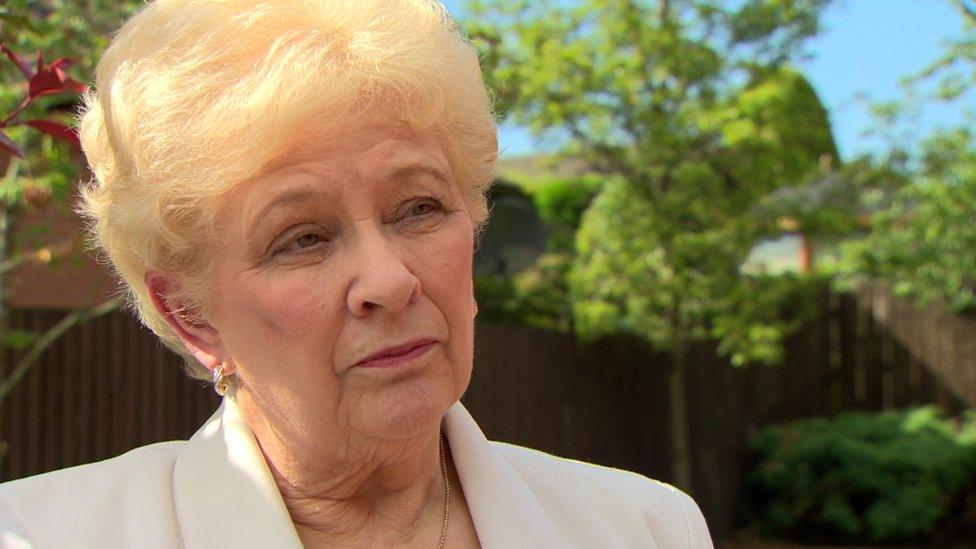
Baroness Nuala O'Loan said an inquiry in the Republic of Ireland into the Omagh bombing in parallel with that announced in the UK would be "most useful"
On Wednesday, following the publication of the terms of reference of the UK inquiry, Tánaiste (Irish deputy prime minister) Micheal Martin said the Irish government would be "fully co-operative" with the UK inquiry but said he did not think a separate Irish government inquiry made sense.
"I think two separate inquiries doesn't make sense because it would be clear overlap and duplication and crossing each other," he said. "But we have mechanisms and we've changed the law a number of occasions to facilitate the information the Republic may have in respect of certain crimes."
The UK government said the terms of refence of the inquiry - agreed by the Northern Ireland secretary and inquiry chairman Lord Turnbull - would investigate issues linked to four grounds identified by the High Court in 2021.
These include:
The handling and sharing of intelligence
The use of mobile phone analysis
Whether there was advance knowledge or reasonable means of knowledge of the bomb
Whether disruption operations could or should have been mounted, which may have helped prevent the Real IRA attack
'Cross border crime'
Michael Gallagher, whose son Aidan died in the attack, said public inquiries on both sides of the border would have been a better way to get to the truth.
"The bombing was a cross-border crime," he told BBC Radio Foyle's North West Today.
"In fact, the people who carried it out came from the Republic and returned to the Republic.
"The Irish government always said they needed to see the terms of reference and now that we've all got the terms of reference, I would call on the (Irish) government to meet with us and hear our fears and concerns and listen to how they propose to remedy that."
He added: "We've never taken away from the fact that it was militant extremist republicans who carried out this attack but there are other issues around how intelligence was managed that is equally concerning for the families."
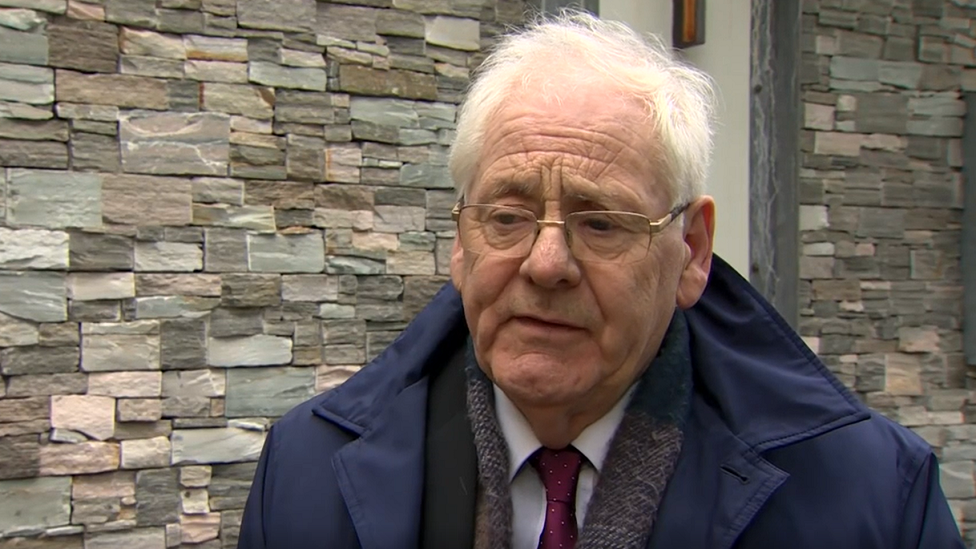
Michael Gallagher has called for public inquires on both sides of the border
Mr Gallagher took the legal challenge that resulted in the judge directing the state to act.
The Omagh bombing happened four months after the signing of the Good Friday Agreement, the peace deal that eventually brought an end to decades of violence known as the Troubles.
It was carried out by dissident republican group the Real IRA, which split from the much larger Provisional IRA after objecting to its ceasefire of 1997.
No-one has ever been convicted of the atrocity.
Real IRA leader Michael McKevitt, who died in 2021, was found responsible for the bombing in a civil case in 2009, with three other men - Liam Campbell, Colm Murphy and Seamus Daly - also being found liable for the attack.
The four men were named by Mr Justice Morgan in a ruling made as part of a landmark case taken by some of the families of the victims.
The 12 relatives were awarded more than £1.6m in damages for the attack but to date nothing has been paid.
Related topics
- Published21 February 2024
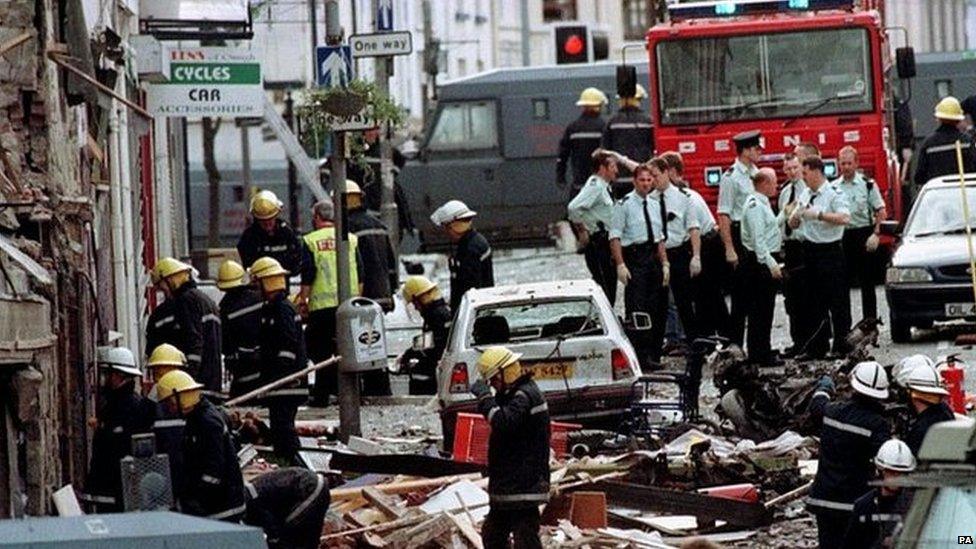
- Published2 February 2023
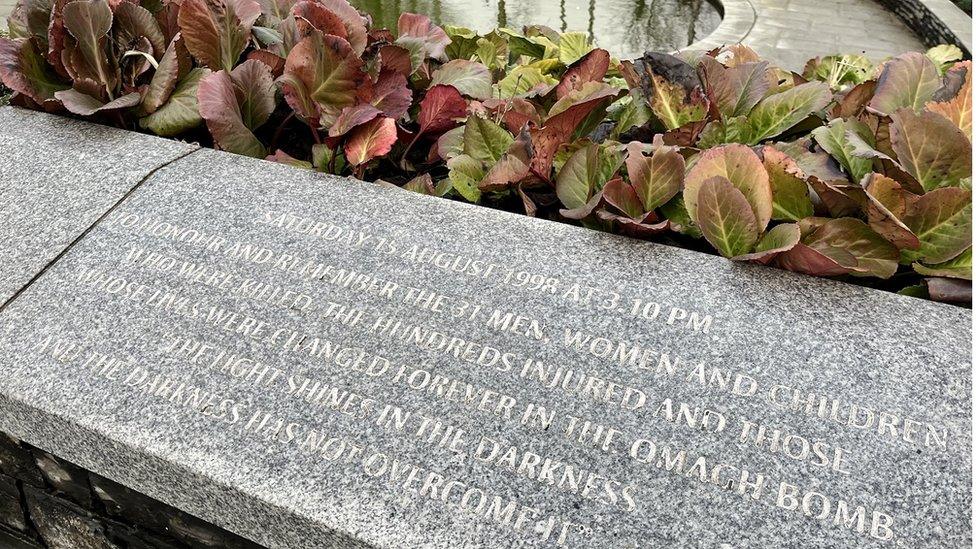
- Published28 January
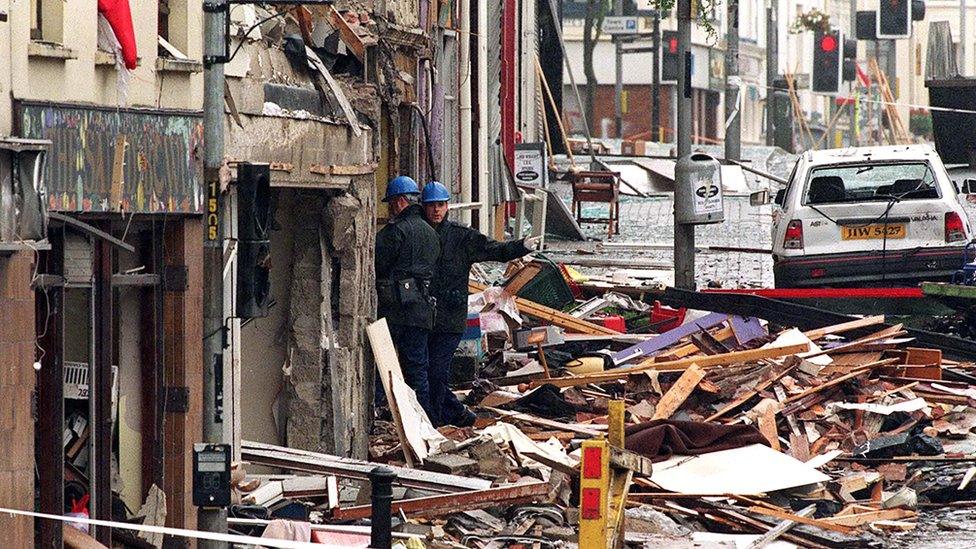
- Published2 February 2023
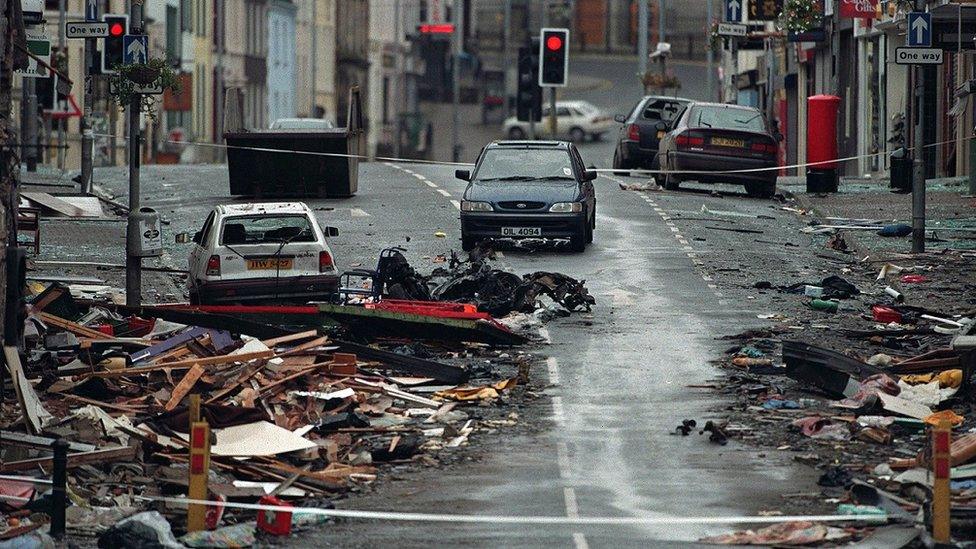
- Published8 October 2021

- Published15 November 2022
